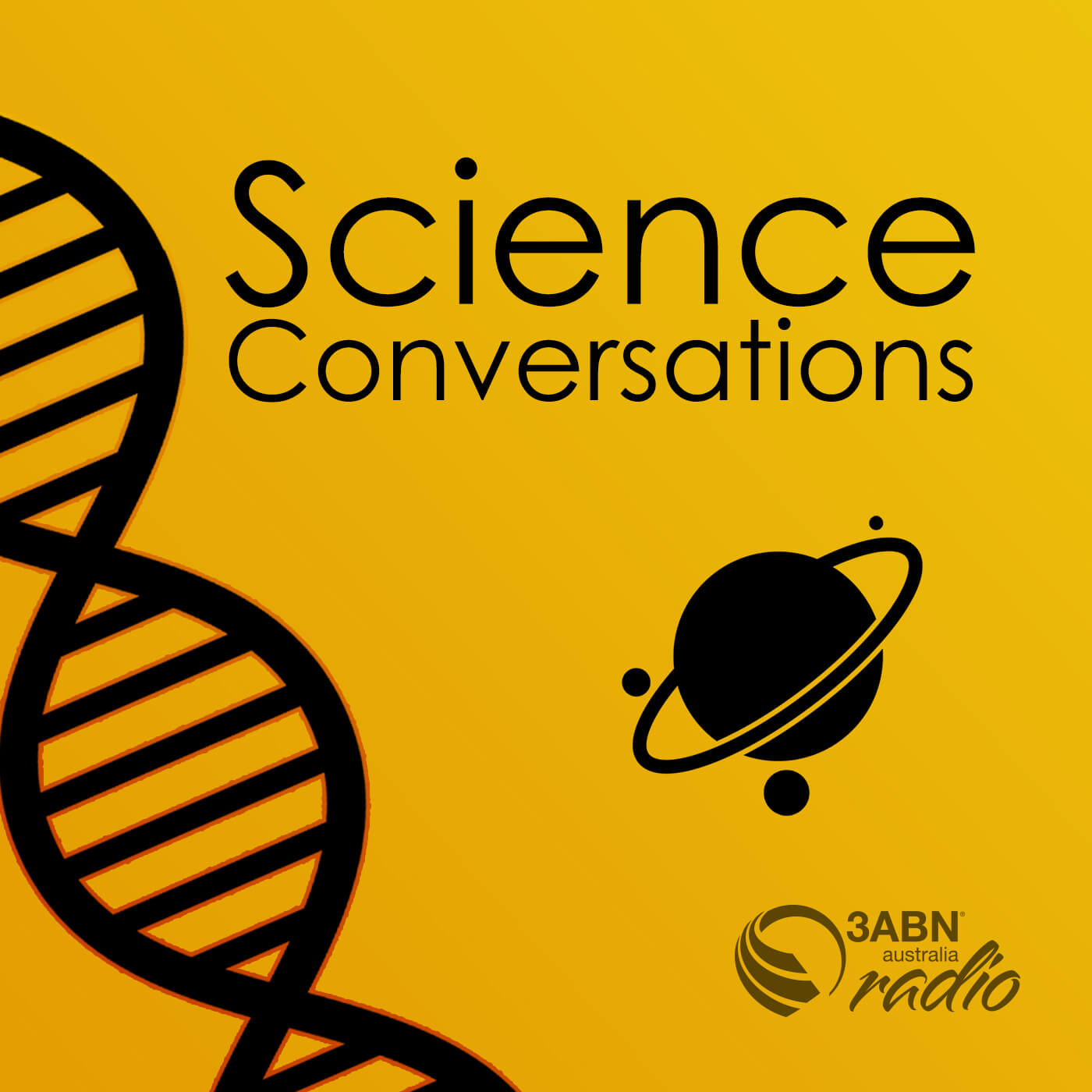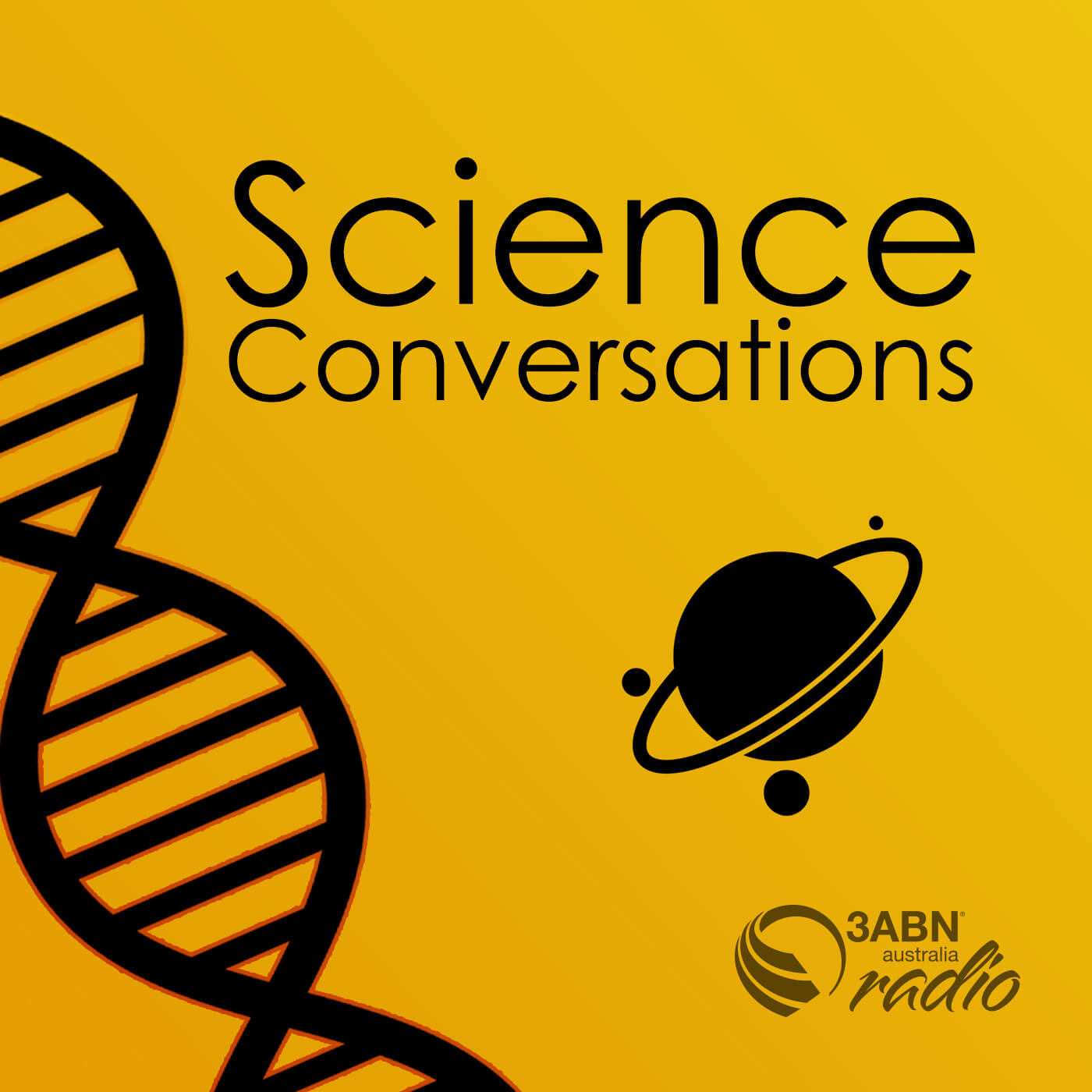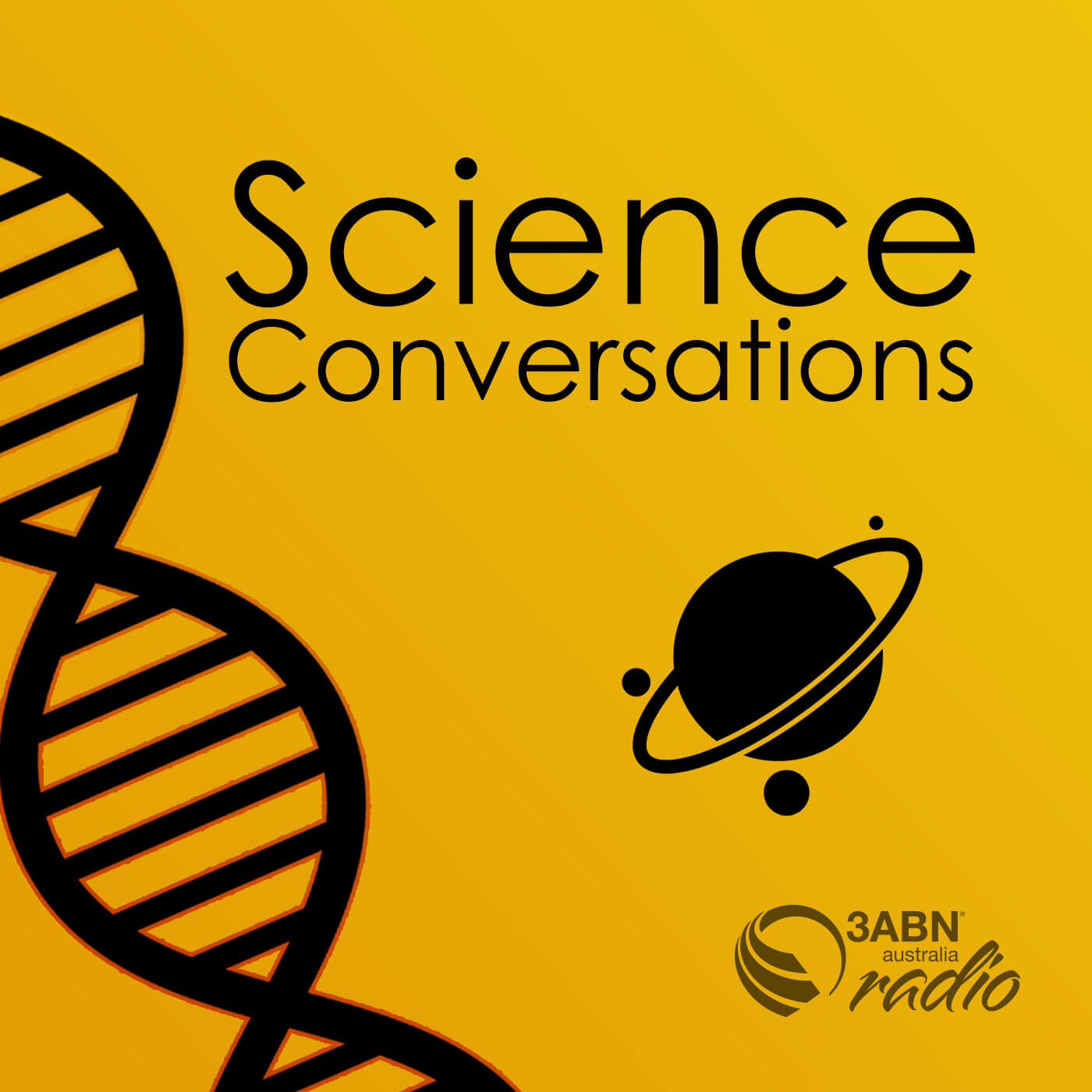Episode Transcript
SPEAKER 1
Welcome to Science Conversations. I'm Kaysie Vokurka. Are there problems with the Big Bang theory? Joining me to discuss part one of this topic is Dr. John Ashton. Welcome to the program Dr. John.
SPEAKER 2
Hello Kaysie.
SPEAKER 1
Dr. John Ashton has written a book entitled Evolution Impossible: 12 Reasons why Evolution Cannot Explain the Origin of Life on Earth. And we'll be referring to chapter 11, of his book in this program. So, John, what is the Big Bang Theory in a nutshell?
SPEAKER 2
Okay, so the Big Bang Theory is an explanation for the origin of the universe. But there's a common misconception about what this theory actually involves, even by many astronomers and physicists and teachers. So, Many people think that essentially there was some initial ultra high temperature, ultra high energy source, which they call the singularity, that expanded in three-dimensional space and as this energy condensed and so forth into matter, formed the stars and so forth that made up the universe. But that actually is not the real Big Bang theory.
SPEAKER 1
Okay.
SPEAKER 2
So the Big Bang theory is actually even more contrived than that in that what happened, and the problem is that when we observe space, it's what they call isotropic. In other words, we seem to be at the center of the universe. It seems to be same density of matter all around us the same. Now, scientists didn't want that when they were designing the theory because they didn't want our planet, our solar system, to be in a special place as if we were created. So what they essentially came up with was what they call the cosmological principle, that in the beginning, whatever there was, this energy and space expanded in a fourth dimension, which they call hyperspace, right? So in actual fact, it's not matter expanding in three-dimensional space. It's actually three-dimensional space with matter expanding in a fourth dimension. And one of the reasons they do this is because of the mathematical properties that this scenario has. Now, to simplify this, if we imagine a balloon, right? So you blow up a balloon. and say you've drawn little circles around the balloon as if like little polka dots or something, and then you blow the balloon up even further, these dots all expand apart, right? Now, if we look at these dots, they're on the surface. So the dots or the little circles are on a two-dimensional surface, which is in three dimensions. So when you, if you have a sphere, Where's the centre of the surface of a sphere?
SPEAKER 1
There's none.
SPEAKER 2
There's none. No. And there's no boundary either, is there? There's no edge to the surface of a sphere, right?
SPEAKER 1
Continuous, yes.
SPEAKER 2
So if you have three-dimensional space expanding in fourth-dimensional hyperspace or some theoretical fourth dimension, there's no centre and there's no edge. So that would explain then why everything would look the same in all directions. Right.
SPEAKER 1
And that would be wherever you are in that within that space.
SPEAKER 2
That's right. So it means what they want to do is create a situation where we're not special. But we need to point out that there's no evidence that we've expanded in a fourth dimension. There's no evidence for hyperspace. This is just a made up hypothetical construct. But that essentially is what the Big Bang theory is that that somehow happened that initially there was this, what they call a singularity, and that's just a vague term to say there was something.
SPEAKER 1
Yes.
SPEAKER 2
And that something expanded and became the universe.
SPEAKER 1
What it is. Yeah. Fascinating. So thank you for giving us that little bit of context. And it's interesting in the history that Sir Fred Hoyle was actually the fellow who coined the term Big Bang during a radio interview with the BBC in 1949. But he rejected the theory, didn't he? Can you explain some of that background and what he had trouble with?
SPEAKER 2
Well, that's true.
SPEAKER 1
Yeah.
SPEAKER 2
So he thought it was a bit of a joke. He thought, you know, if you're gonna have this, you know, okay, so you wanna have a Big Bang, you know? Right.
SPEAKER 1
So he was just referring to it like that.
SPEAKER 2
And that name stuck. Yeah, yeah, yeah, that's right. And one of the things that he pointed out is, hang on, that the properties of the universe are extremely finely tuned. So one of the things that he observed was, for example, on our planet here on Earth, we have an abundance of water, we have an abundance of carbon, we have an abundance of oxygen. These are the ideal conditions for life. And also the properties of the carbon atom with its ability to form four bonds and hence molecular chains that give particular chemical structures and the properties of these structures again, which underpin all the biochemical systems that constitute life on Earth. So, carbon has these very unique properties. And when we look at the universe, and as we understood atomic theory, we see that there was a theory that the higher elements were synthesized from the simpler elements like hydrogen, helium, come together and synthesize the larger elements. And yeah, we can understand this from the laws of physics. And he calculated the energy levels in the carbon atom responsible for the bonding, and that the probability that these could form was immense. In other words, the chances were so small that it was unlikely to have ever happened in the universe. And so it was on the basis of calculating the probability of a carbon atom forming with just these right energy levels of the electrons to allow for these four carbon bonds to allow for this type of covalent bonding and everything to be synthesized somehow by these nuclear processes. The probability of that happening by chance was extremely small. And as he observed the evidence, as he observed the properties of the evidence, he said it made much more sense to assume that a super intelligence had designed the laws of physics and chemistry that are responsible for the construct of the universe. And he also looked at the probability of life arising. And he and a fellow mathematician, another brilliant mathematician, I'm hard to pronounce his name, starts with W, had lots of letters in it. But he was Rocky, something like that. brilliant mathematician. And again, they calculated the probabilities of life forming and said it's so small, it's unlikely to happen in the universe. So that led to, and he actually published a book, Life in Space, saying the only chance is that maybe it did form in space somehow because the probability of it forming on Earth was so small. But we since know that that since that time, other probabilities that are related to this whole concept of fine tuning have been calculated. And I'll just explain some of them because this has been, this is powerful evidence that the Big Bang can't be responsible or some Big Bang process can't be responsible for the origin of the universe because the probability of things occurring are so small it's much outside the realms of even the universe. And we can explain it this way in that if we think that if we write big numbers, we write big numbers in terms of powers, right? So if we have wanted to write the number 100, we could write 10 to the power 2, because 100 has two noughts after it. Or if we want to write A thousand we'd write 10 to the power three. Or if we wanted to write a billion, 10 to the power nine. Now if we wanted to imagine the number of atoms, say in a dessert spoon of water, right, we're looking at around about 10 to the 24 atoms there. So that would be, or 10 to the 23, some in that. So that would be something like 100 billion billion we would represent as 10 to the 24. So now very quickly these numbers get big because scientists estimate that the number of atoms in the universe. So if you can imagine there's 100 billion billion atoms in a desert spoon of water.
SPEAKER 1
Just swallow it, it's so small.
SPEAKER 2
Just imagine how many atoms in all the oceans of the world.
SPEAKER 1
Oh my, Mind's got to swim.
SPEAKER 2
That's right. Just imagine how many atoms in all the Earth.
SPEAKER 1
Yes.
SPEAKER 2
Then how many atoms in all our solar system? And then how many atoms in the universe? Well, when we write it by this notation, it's only 10 to the power 80 atoms in the universe.
SPEAKER 1
Okay.
SPEAKER 2
So by using this notation, 10 to the power 80, it gets very big. Now, the probability, for example, of initial entropy, in other words, the initial energy for the universe to form just right, it's been calculated by Professor Roger Penrose, who's theoretical chemist at Oxford University, as one part in 10 raised to the power 10 to the 1023. Now, this is an So if you can imagine, for example, that if there were as many universes as there are atoms in the universe, and you wanted to count up all those atoms, you would only have 10 to the power 160 because you multiply by just adding indices. Okay. So just imagine a number, well, if we look at this way, just the chances of the cosmological constant, which is the balance of this three, you know, the balance of the expansion of the universe as estimated as one part in 10 to the 20, 120. So it's trying to find one atom amongst all the atoms. If there were as many atoms, almost as many universes as there are, almost atoms in the universe, So that's that number. But the chances of the initial entropy just being right, as I said, is one part in 10 raised to 10 to the power 120. That number is just so large. So what it means is that the probability of our universe forming, when we do the calculations, is so small that it's absolutely impossible. So what these calculations, when we look at the fine tuning of, say, the electromagnetic magnetic force versus the force of gravity. It's one part in 10 to the power 37. The gravitational constant being just right is one part in 10 to the power 34. The mass density of the universe for it to just work is one part in 10 to the power 29. All these factors, you then have to multiply them together so you add them up.
SPEAKER 1
Yes, yes.
SPEAKER 2
And the probability of it happening is like as Hoyle said, is just astronomically impossible. Absolutely impossible. And what he says, and common sense points out to it, that we were designed, the universe was designed, a chance big bang explanation for the universe is improbable. And on the basis of what we know about science, impossible. And so because, you know, the definition of impossibility is one part in 10 to the 160. In other words, the chances of finding one atom in as many, if there were as many universes as there are atoms in the universe, and you have to find one particular atom out of all those atoms, first go, that's sort of the limit. So philosophically, we think of that as impossible. So these numbers, the probabilities are even much, much you know, less than that. Yeah. So it's beyond the mind.
SPEAKER 1
Yes.
SPEAKER 2
And so, but the fact that we're here in powerfully points to a supernatural event causing us, not some naturalistic event. And that's what Hoyle was pointing out when you look at the maths, and he was a professor of astronomy at, I think, Cambridge or Oxford, one of those, I think, was Cambridge. but was pointing out that when we look at it, the Big Bang's impossible. That's why it's a joke. Yeah. We had to have been designed by a supernatural intelligence that worked out all this fine tuning and got it all balanced just right so that we work. The evidence is overwhelming for a creator.
SPEAKER 1
That is just incredible because as you're sharing all about these theories, it reminds me, it sounds to me like the theory of evolution applied to the cosmos in terms of the origin, naturalistic processes and everything. And yet the same, except to a greater degree, improbabilities are found in that scenario as well. And so it's very important, I think, that we are considering this because that is very significant what you're sharing in terms of our understanding of why everything is here and how did it come to be here?
SPEAKER 2
Well, that's right. The Good Book says the heavens declare the glory of God. When we look at the physics, that's exactly right.
SPEAKER 1
Incredible. Well, we're going to continue talking about this topic. Next time, we're going to look more at the question, are there problems with the Big Bang theory? Be sure to join us.


